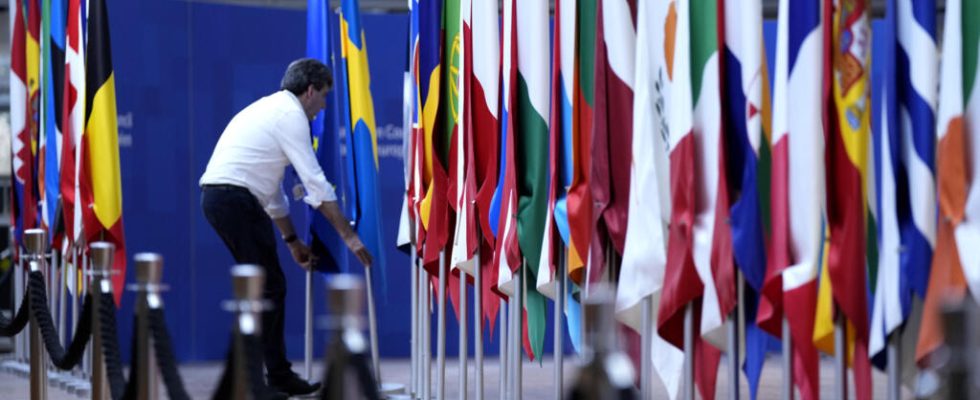The results of the French legislative elections have, from the European Union’s point of view too, given a much more mixed result than the polls had suggested. For Europeans, the big question now is to see according to which political geometry the French government will be formed.
3 min
From our correspondent in Brussels,
For European partners of Franceits mode of operation is quite confusing. France is an exception, because it is the only one not to use coalitions, and Europeans have difficulty seeing clearly due to the absence of texts that would set in stone questions with serious consequences for France’s role in the European Union.
First, as for who will appoint the next French European Commissioner, given that Emmanuel Macron has already designated Thierry Breton to succeed himself. Then, the famous question of the reserved domain of the President of the Republic which would maintain a decisive voice for him in the EU’s foreign policy.
From the point of view of the current priorities of the European Union, some of the mortgages that weighed on support for Ukraine seem to have been lifted. Due to the absence of a majority, even a relative one, of the National Rally, support for Ukraine seems likely to continue in its current form, even if over the course of the campaign, Jordan Bardella had qualified the positions that seemed to be his at the start. Finally, it was above all the sending of French soldiers and missiles capable of striking Russian territory that constituted a red line for the RN.
However, the prospect of a coalition or minority government will undermine the political clout that President Emmanuel Macron enjoyed within the European Council and weaken his ability to provide impetus for or support increased aid to kyiv.
Questions still pending
Some also mention a weakening that could have consequences on the functioning of the European Union. This is a hypothesis that is current, in any case as long as the geometry of the future French government is not known. The last French cohabitation ended twenty-two years ago and Europeans have resumed the habit of a French president in a preeminent position. And since then the situation has changed since the new European treaty only gives one place per country to the European Council, so there would no longer be French tandems in Brussels like at the time of Jacques Chirac and Lionel Jospin.
This is therefore above all a period of uncertainty that is beginning, but it is aggravated by the weakening of the German coalition since the European elections. And the crises recently experienced by the European Union have demonstrated that the Franco-German engine is still a necessity to advance European projects.
The political parties’ programs during the campaign are in fact what has raised the most outstanding questions, especially regarding public finances. In the eyes of Europeans, both the New Popular Front and the National Rally have proposed policies that would significantly increase public spending. This looks bad at a time when France is under surveillance until the fall and could find itself subject to a European procedure for excessive deficit. And the New Popular Front’s program raises questions, because it postulates the rejection of the stability pact that is nevertheless a condition for membership of the Euro; its current reform alone has already cost months of hard-fought negotiations.
Read alsoLegislative elections in France: in Europe, relief for leaders and elected officials
